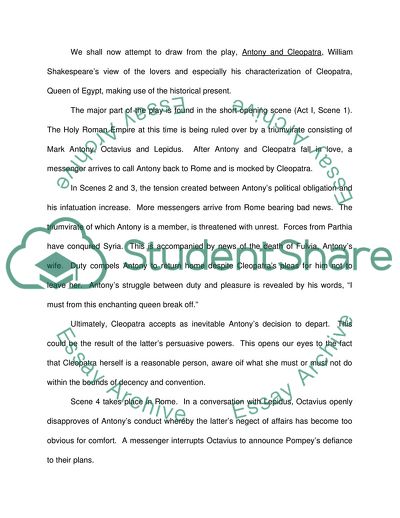Cite this document
(Antony and Cleopatra by William Shakespeare Book Report/Review, n.d.)
Antony and Cleopatra by William Shakespeare Book Report/Review. Retrieved from https://studentshare.org/literature/1707845-shakespeares-presentation-of-cleopatra
Antony and Cleopatra by William Shakespeare Book Report/Review. Retrieved from https://studentshare.org/literature/1707845-shakespeares-presentation-of-cleopatra
(Antony and Cleopatra by William Shakespeare Book Report/Review)
Antony and Cleopatra by William Shakespeare Book Report/Review. https://studentshare.org/literature/1707845-shakespeares-presentation-of-cleopatra.
Antony and Cleopatra by William Shakespeare Book Report/Review. https://studentshare.org/literature/1707845-shakespeares-presentation-of-cleopatra.
“Antony and Cleopatra by William Shakespeare Book Report/Review”. https://studentshare.org/literature/1707845-shakespeares-presentation-of-cleopatra.


